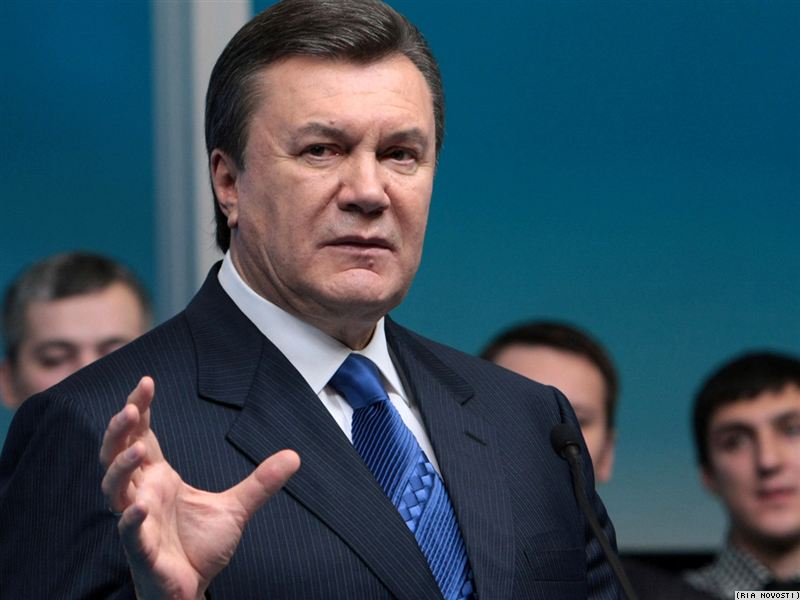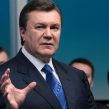
Ukraine’s Oligarchs and Democratic Regression: Why Are They Silent?
Publication: Eurasia Daily Monitor Volume: 7 Issue: 170
By:

The image of the Viktor Yanukovych administration continues to deteriorate in the eyes of Ukrainians and Europe, as seen in opinion polls and a September 13 statement by the Political Assembly of the center-right European Peoples Party, the most influential political group in the European Parliament. The EPP asserted it is “deeply disturbed by the ongoing situation with Ukraine’s democratic development” (https://epp.eu/press.asp?artid=1447&fullview=1). Two days later the EU called upon Yanukovych to not destroy Ukraine’s democracy (www.pravda.com.ua/news/2010/09/17/5393165/).
A central figure contributing to ending Yanukovych’s honeymoon with the West is the Ukrainian Security Service (SBU) Chairman, Valery Khoroshkovsky. It is, therefore, surprising that his protégé, oligarch and Leonid Kuchma’s son-in-law, Viktor Pinchuk, a trailblazer in seeking to lobby a new and improved international image for himself, has remained silent. Khoroshkovsky was propelled into Ukrainian politics in 2002 as a leader of the KOP (Winter Crop Generation) political party that Pinchuk funded as a rival to Viktor Yushchenko’s Our Ukraine.
The seventh annual summit of Pinchuk’s Yalta European Strategy (YES), an event which senior European and American elites regularly attend, had nothing to say about threats to Ukraine’s democracy (https://yes-ukraine.org/en/yes7agenda.html). Such threats derail Ukraine’s hopes for European integration, as seen in the EPP and EU statements, and thereby make the work of the YES NGO ineffectual. Former European Union High Representative for Common Foreign and Security Policy and Secretary General of the Council of the EU, Javier Solana, joined the board of YES. YES Chairman and former Polish President, Aleksandr Kwasniewski, said, “With his outstanding record as the EU’s chief diplomat he is uniquely suited to further strengthen the impact of YES as the leading platform to promote Ukraine’s European integration.” “Ukraine has a special place in my heart,” Solana said, adding “therefore, I am happy to be able to support its work towards European integration as a board member of YES. I will work with the YES board to provide concrete advice and help foster a constructive dialog on how to tackle common global challenges and pave the way to Ukraine’s EU integration” (https://yes-ukraine.org/en/events.html?_m=publications&_c=view&_t=rec&id=993). Such statements appear to be mere rhetoric in the face of the assault on Ukraine’s democracy.
In addition to Pinchuk, Khoroshkovsky is also tied to Dmytro Firtash through media interests in Inter, Ukraine’s most popular television channel, and seven regional channels. Inter, which is the dominant channel in Russophone Eastern-Southern Ukraine, played a vital role in mobilising votes for Yanukovych in this year’s presidential elections. Firtash, unlike Pinchuk, has no political ambitions beyond aligning with Ukrainian politicians who do not intervene in his business interests, particularly gas. Firtash has never run for parliament, unlike Pinchuk who did so in 1998 and 2002.
Pinchuk, Firtash and other Ukrainian oligarchs would not wish to see a Russian-style authoritarian regime introduced into Ukraine as it would be unpredictable in its relations with big business and would undermine European integration. Ukraine’s oligarchs see as more important Kyiv signing a Free Trade Zone (FTZ) with the EU over the amorphous CIS Single Economic Space. Nevertheless, Ukrainian oligarchs have not followed some of their Russian counterparts (Mikhail Khoroshkovsky, Vladimir Gusinsky, and the more controversial Boris Berezovsky) in opposing authoritarianism, after Vladimir Putin was first elected in 2000. Some Ukrainian oligarchs, such as Khoroshkovsky and Igor Kolomoysky, owner of 1+1 channel, have been accused by journalists of assisting in dismantling democratic gains by introducing censorship (www.telekritika.ua/cenzura/). The declining situation in the media has mostly contributed to tarnishing the Yanukovych administration’s image in Europe (Reporters Without Frontiers, September 1, https://en.rsf.org/ukraine-temptation-to-control-report-of-01-09-2010,38249.html).
Khoroshkovsky has embarrassed the Yanukovych administration and thereby harmed Ukraine’s European credentials in his two positions as media magnate and SBU Chairman. Channels 5 and TVI have been stripped of frequencies they won in competitions. Academics and historians working in archives have been detained, threatened or visited by the SBU, leading to an outcry throughout Europe and an open protest letter signed by over 100 Western academics on September 15 (https://eng.maidanua.org/node/1147 and SBU reply at www.pravda.com.ua/news/2010/09/15/5384815/).
The SBU’s July detention of Nico Lange, head of the Ukraine office of the Konrad Adenauer Stiftung, was embarrassing for the Ukrainian authorities coming only a month before Yanukovych’s visit to Germany. Lange was released only after the intervention of Chancellor, Angela Merkel. A subsequent investigation of the Revival Fund, financed by George Soros, was closed after a direct intervention by the presidential administration head, Serhiy Levochkin (www.pravda.com.ua/news/2010/09/8/5365637/).
Anatoliy Grytsenko, head of the parliamentary committee on national security and defence, believes –like many– that the SBU is deliberately derailing Ukraine’s European integration and thereby pushing Ukraine into a single vector pro-Russian foreign policy (https://www.pravda.com.ua/news/2010/09/19/5395398/). Such views about Khoroshkovsky are widespread in the foreign ministry, a senior Ukrainian diplomat confided to Jamestown, and among former SBU officers who see the SBU transforming itself into a new KGB (https://www.dt.ua/1000/1550/70437/). The Ukrainian Helsinki Human Rights Union warned that SBU officers actions “are more reminiscent of those of the KGB in the Soviet era” (https://eng.maidanua.org/node/1144).
The detention of former Yulia Tymoshenko government ministers is not perceived, as Yanukovych claimed during his August 30 visit to Germany, as a serious battle against corruption because the arrests are selective against only one political force, the Tymoshenko bloc (BYuT). Tymoshenko’s right-hand man, Oleksandr Turchynov, was interrogated by the SBU and has since gone into hiding, together with former Economy Minister, Bohdan Danylyshyn, who is wanted for questioning.
The Fatherland Party, which Tymoshenko leads, is a member of the EPP where she spoke during the EPP congress on September 15. The EPP includes leaders and governments from 15 EU members as well as EU Commission President, Manuel Barroso, and therefore will influence whether the West declares the October 31 Ukrainian local elections as “free” (https://epp.eu/index.asp).
Some of Ukraine’s oligarchs have sought to change their international image, all have second homes in France, Monaco and Britain and support Ukraine signing a free trade zone agreement with the EU. Why are they silent about the erosion of Ukraine’s democracy, particularly steps undertaken by the SBU, which undermine Ukraine’s future prospects of EU membership? Indeed, their silence is even more contradictory as they have more to lose than Russian oligarchs who opposed authoritarianism during Putin’s first term. Russia –unlike Ukraine– has never sought NATO or EU membership.




